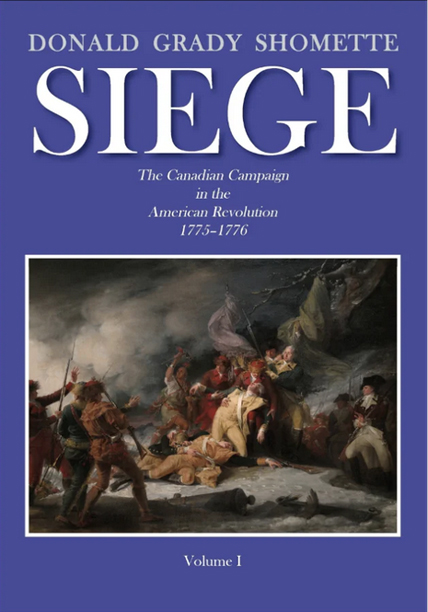Young Benjamin Franklin: The Birth of Ingenuity by Nick Bunker. (New York: Alfred A. Knopf, 2018)
This is a tome that, as Gordon S. Wood is quoted on the dust jacket, attempts “the nearly impossible—to say anything new about Benjamin Franklin.” Young Benjamin Franklin is by Nick Bunker, a British journalist and businessman turned historian of early America. Bunker is the author of two previous works, Making Haste from Babylon: The Mayflower Pilgrims and their World and the superb An Empire on the Edge: How Britain Came to Fight America.
The current work is a handsomely-produced, 464-page hardcover that retails for $30; there are also electronic and audible editions. It includes 377 pages of text, 44 of notes, 8 pages of glossy black-and-white illustrations, plus a bibliographical essay and index.
The book traces its protagonist’s background and life from his birth in 1706 through to 1747, five years before he became locally and internationally famous at forty-six, as the scientist whose meticulous experiments identified electricity with lightning.
Its structure is basically chronological, beginning with one of the particularly noted contributions of the author, an extensive description of Franklin’s antecedents in Northamptonshire, going back to his great-grandfather. They were lowly farmers, blacksmiths, and carpenters, but Bunker teases out a consistent and pervasive family trait that was passed on through the generations to his subject: ingenuity. He defines it as “a hybrid virtue, a blend of . . . intellect, . . . imagination and skills with the hand and with the eye as well as with the brain. Ingenuity required not only diligence and learning, but also an element of playfulness and sociability.” It was one of Benjamin Franklin’s favorite, and most used, words, and constitutes a theme of the current book.
Some things you may not have known about Benjamin Franklin:
- In the Autobiography (which Franklin never published during his lifetime), Franklin more or less dismissed his family background as poor and insignificant. Bunker (who lives today in the English midlands from which Franklin’s ancestors came) points out that they were never destitute, strove mightily to support their children’s ambitions, and hewed to a high-minded, middle-class religious and social tradition over multiple generations.
- Young Benjamin went through many crises of religious belief, as he began to examine his family’s strict Presbyterian adherence. A constant reader from early childhood, Franklin plowed through dense theological writings in his adolescence, at one point effectively declaring himself (to his diary) as an atheist. Then he appears to have lost interest in metaphysics altogether, and come to the pragmatic, deist conclusion that humanity can’t really get along without a God—and therefore he believed in God.
- Franklin’s morally questionable bolt from Massachusetts, at age seventeen, was due as much to the public outrage he’d caused by satirizing Cotton and Increase Mather in the New-England Courant, as to his desire to avoid the fulfillment of his indentures to his brother.
- Franklin got into public difficulties again years later, as the publisher of the Pennsylvania Gazette, when he alternately denigrated and supported the ministries of various “New Light” divines of the Great Awakening.
- In Philadelphia, Franklin began an affair with Deborah Read, the daughter of his landlord, only to abandon her when the opportunity arrived for his first voyage to London. He was twenty. Some years later, after his return, having enjoyed some dalliances but also having observed friends succumbing to syphilis, Franklin renewed the affair and married her.
Like his family, Deborah unfortunately gets short shrift in the famous Autobiography. Bunker takes pains to describe her family’s similar English midlands background, the correspondence evidencing Franklin’s devotion to her, and his trust in her careful management of his extensive American business over his long absences.
The author contends that Franklin’s true callings were not as a journalist and publisher, but first as a scientist, and second as a political activist. And that he was past forty when he fully realized this of himself, having only then found himself economically capable of pursuing such ambitions—usually the prerogative only of men with inherited wealth. Bunker suggests that his family background, his readings, and his personal history came together to make him the first American to conduct true science based on ingenious, rigorous experimentation followed by careful, mathematically-precise conclusions; and that this demanding empirical mind-set applied to his political activism as well.
Young Benjamin Franklin is a deeply researched and very well-written book that is particularly recommended for Franklin fans, but also for anyone interested in the intense political and intellectual ferment of the American colonies in the first half of the eighteenth century—the world of the generations who sired the leaders of the American Revolution.
(As an Amazon Associate, JAR earns from qualifying purchases. This helps toward providing our content free of charge.)









One thought on “Young Benjamin Franklin: The Birth of Ingenuity”
Thank you for the review. I’ve thought about purchasing this book, but haven’t yet.
I’ve read the Franklin biographies by Brand, Isaacson, and Morgan and found each of them excellent and enlightening in different ways. So, my hesitation is whether there will be anything new to glean.
However, i loved Mr. Bunker’s book, An Empire On The Edge.
So , your review may just entice me to finally read his new book on young Franklin!